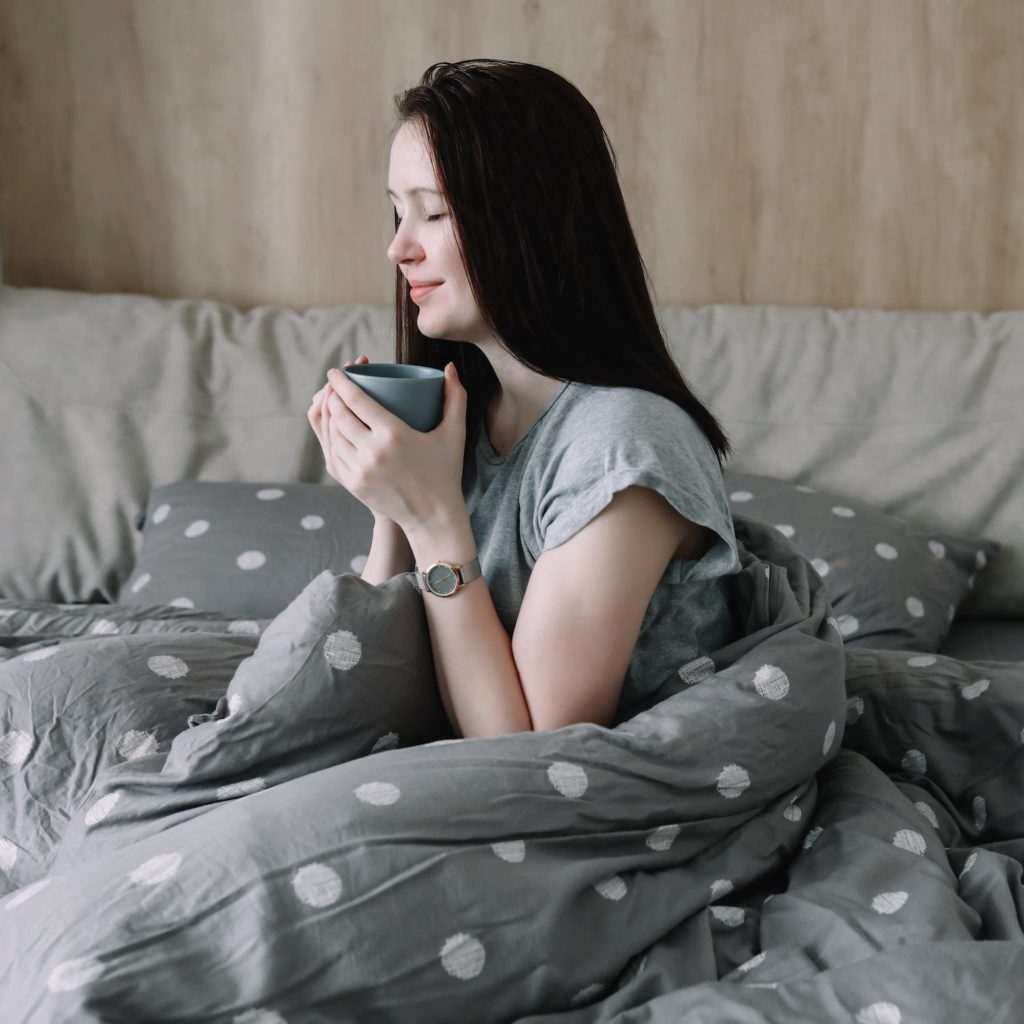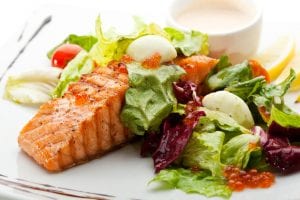Caffeine is a naturally occurring substance present in coffee beans, tea leaves, guarana, and cocoa beans. Caffeine has become the world’s most popular stimulant due to its ability to boost alertness and energy levels. For many people, a hot cup of coffee is a key part of the morning routine. Consuming caffeine too close to bedtime, however, can make it difficult to fall asleep.
The average American adult consumes between 120 milligrams and 215 milligrams of caffeine per day, which is well under the recommended limit of 400 milligrams. Compared to people living in the countries of Europe, Asia, and Latin America, U.S. residents consume significantly more of their caffeine in the form of soda, sports drinks, and energy drinks.
The Food and Drug Administration (FDA) only requires added caffeine to be listed on food and drink ingredient labels. Products that contain naturally occurring caffeine do not have to list caffeine as an ingredient, which means not all consumers realize which foods and drinks have caffeine in them.
You may be surprised to learn that a significant portion of daily caffeine intake comes not from coffee, tea, and energy drinks, but from flavored sodas, chocolate, and other hidden sources.
Does Decaffeinated Coffee Contain Caffeine?
Despite the name, decaffeinated coffee still contains trace amounts of caffeine that may result in side effects if you’re sensitive to caffeine. While the exact amount may vary depending on the brand and the strength of the brew, you can expect to find around 5 milligrams of caffeine in an 8-ounce cup of decaf coffee.
For comparison, an 8-ounce cup of regular coffee contains 95 milligrams, and one ounce of espresso contains 63 milligrams of caffeine. Black tea can also contain 48 milligrams of caffeine per 8 ounces, so if you’re looking for a calming drink before bed, you may want to reach for a caffeine-free herbal tea instead.
Do Sugary Drinks Contain Caffeine?
You may expect energy drinks and guarana to have caffeine in them, but you’ll also find this energizing substance in seemingly caffeine-free drinks such as certain sodas or flavored milk. Drinks like Coca Cola and Mountain Dew contain between 20 milligrams and 40 milligrams of caffeine per 8 ounces.
Overall, soft drinks account for about 16% of caffeine consumption in the United States, and they are more popular with younger consumers. Because these drinks also tend to be high in sugar, they should be consumed in moderation and they’re not the best choice if you want to relax before bed.
Does Chocolate Have Caffeine?
Cocoa beans naturally contain a fairly high amount of caffeine. As a benchmark, dark chocolate with a cocoa content of 60% to 70% contains about 86 milligrams of caffeine per 100 grams. The darker the chocolate, the higher the cocoa content and the more caffeine present. If you have a sweet tooth after dinner, white chocolate may be a better choice.
Some examples of chocolate-flavored foods that contain caffeine include hot chocolate, breakfast cereals, ice cream, and candy bars. These foods have a proportional amount of caffeine depending on their cocoa content. For example, 100 grams of chocolate cake with chocolate frosting has about 6 milligrams of caffeine, while chocolate ice cream contains just 3 milligrams per 100 grams.
Is There Caffeine in Coffee-Flavored Confections?
Coffee-flavored ice cream can actually pack a significant amount of caffeine. Energy bars have also been known to use caffeine for an added boost, especially chocolate- or coffee-flavored options.
Does Medication Contain Caffeine?
Despite popular wisdom that caffeine can worsen premenstrual symptoms, newer research suggests it may not be as harmful as previously thought. In fact, some medications marketed for relief from premenstrual symptoms include caffeine, which is used to reduce bloating and fatigue. Caffeine is also sometimes added to dietary supplements and pain relievers, such as headache medication.
Should I Avoid Foods with Caffeine?
If you are sensitive to caffeine or if you struggle with insomnia, it’s helpful to have some knowledge of which substances to avoid. To be on the safe side, try to steer clear of caffeine within four to six hours of bedtime. Children, older adults, pregnant women, and other vulnerable populations should take extra care when consuming caffeine.
For most people, a few pieces of chocolate or a pain reliever aren’t likely to contain enough caffeine to significantly affect sleep quality. That said, following a mindful diet can help you sleep better and may even help you avoid bad dreams.
References
Ask the Sleep Doctor
Have questions about sleep? Submit them here! We use your questions to help us decide topics for future articles, videos, and newsletters. We try to answer as many questions as possible. You can also send us an email. Please note, we cannot provide specific medical advice, and always recommend you contact your doctor for any medical matters.








